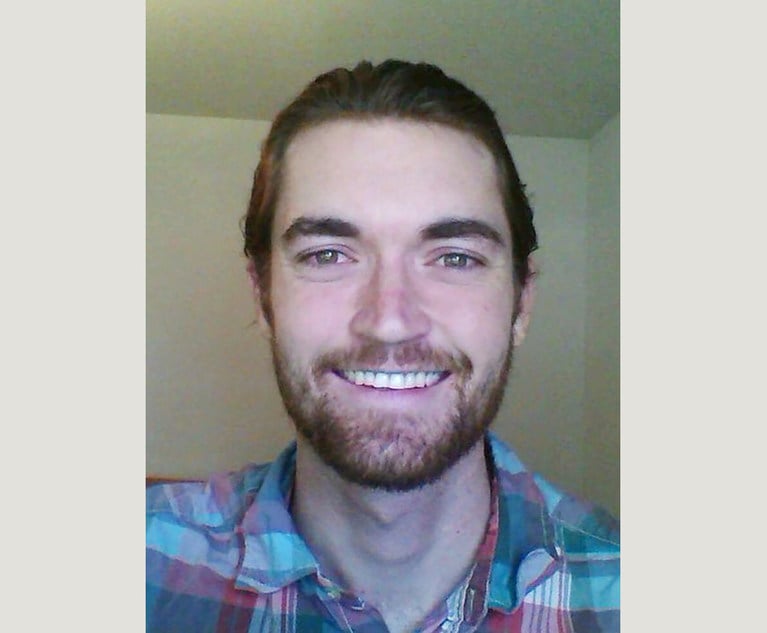 In more than 1,600 opioid lawsuits filed by U.S. cities and counties, most claims are being made under racketeering and conspiracy statutes as well as nuisance laws. (Photo: Shutterstock)
In more than 1,600 opioid lawsuits filed by U.S. cities and counties, most claims are being made under racketeering and conspiracy statutes as well as nuisance laws. (Photo: Shutterstock)
Determining who foots the bill for America's growing opioid epidemic may depend on how well the state of Oklahoma deploys a high-risk legal strategy this week against Johnson & Johnson and Teva Pharmaceutical Industries Ltd.
At least 42 states and more than 1,600 municipalities are suing makers of the addictive painkillers, demanding billions of dollars in damages and claiming illegal drug marketing created a costly public-health crisis. Oklahoma is the first to go to trial with a case relying on nuisance laws normally invoked for minor property disputes involving things such as loud noises or bright lights.
“It's the first time this theory has actually gotten to trial in pharmaceutical litigation, so everybody will be watching to see if it works,” said Richard C. Ausness, a University of Kentucky law professor who monitors opioid litigation.
Related: 5 more states sue Purdue Pharma over opioid marketing
Oklahoma Attorney General Mike Hunter claims J&J and Teva are liable for at least $10 billion in damages from the state's two-decade surge in opioid addiction. The companies overstated the benefits of their drugs and understated the risks with a relentless marketing campaign that led doctors to prescribe the medications to treat ailments for which they'd not been approved, Hunter said.
The state also accuses J&J of being a “kingpin” of the crisis because it once owned units that grew poppies used to make the painkillers. The non-jury trial starts Tuesday before state court Judge Thad Balkman.
The Oklahoma case could serve as a key benchmark for governments hoping to recoup costs associated with the epidemic, while a loss could be devastating for companies. To ease part of its massive legal liability and the threat of bankruptcy, Purdue Pharma LP, maker of the painkiller OxyContin, settled with the state for $270 million in March.
“If the Oklahoma folks can pull this off, it will give other states, along with the cities and counties, more confidence in their public-nuisance claims,'' Ausness said. “J&J and Teva have a lot at stake here.''
Eventually, the pharmaceutical industry likely will incur some financial responsibility over opioid abuse, but with the strength of the legal arguments against the companies still untested, the total could be anywhere from $5 billion to $50 billion, according to Bloomberg Intelligence analyst Holly Froum.
What Bloomberg Intelligence says
The risk of an adverse judgment — and the precedent it would set — against Johnson & Johnson and Teva in an Oklahoma case set for a May 28 trial over the opioid epidemic turns up the pressure to settle.– Holly Froum, litigation analyst Click here to view the research.
J&J and Teva are fighting the allegations in Oklahoma to avoid a first-of-its-kind court loss that could create a worst-case scenario for all the other cases against them, said Jean Eggen, a Widener University law professor who teaches about mass torts.
“Companies generally don't want to jump into the settlement pool until they see how things are going play out in these litigations,” Eggen said, adding that J&J and Teva may prefer to be part of broader settlements that include multiple states and opioid defendants.
Tobacco cases
The core of the Oklahoma case is a public-nuisance argument similar to lawsuits filed against tobacco makers in the 1990s, when states sought reimbursement for spending on smoking-related illnesses. Before any of those cases went to trial, companies including Philip Morris and Reynolds American Inc. agreed in 1998 to pay $246 billion over 25 years — the biggest civil settlement in U.S. history.
After that, similar nuisance claims were brought against other industries, including lead-paint makers. In 2013, a California judge ordered Sherwin Williams Co., NL Industries Inc., and ConAgra Brands Inc. to pay $1.1 billion to address public problems caused by their lead-based products. The award later was cut to $400 million.
But the strategy isn't without risk.
Nuisance cases against gun makers went nowhere. In 2003, a federal jury ruled the National Association for the Advancement of Colored People couldn't prove the firearms industry created a public nuisance in New York or harmed members of the group. Last year, a federal judge in New York threw out the state's lawsuit seeking to hold five of the world's biggest oil companies financially responsible for contributing to climate change.
In more than 1,600 opioid lawsuits filed by U.S. cities and counties, most claims are being made under racketeering and conspiracy statutes as well as nuisance laws. In those cases, which are being overseen by a federal judge in Cleveland, they're also pursuing damages from drug distributors, while Oklahoma is only targeting manufacturers.
To prove opioid makers violated Oklahoma's nuisance law, Hunter must show marketing of the drugs by J&J and Teva was illegal and misled doctors. Using testimony from experts, he then needs to convince the judge the companies' actions led to an explosion of prescriptions, creating a public-health crisis in the state as thousands died from overdoses or battled addiction. If the state succeeds, Balkman will then decide how much it deserves in damages.
The drug makers “created the market for their opioids and then greedily supplied an ever-increasing demand,” Oklahoma's attorneys said in court filings.
J&J and Teva created a “devastating cycle of over-prescription'' that was “built on addiction, dependence and a market saturated with misinformation regarding the benefits and safety of those drugs,” the state said.
The companies say Oklahoma has gone too far in trying to re-define an otherwise limited public-nuisance law.
The state “now argues that public nuisance allows them to compel any party allegedly contributing in any measure to a social problem to fund all programs that state administrators dream up to address it,” John Sparks, J&J's attorney, said in an emailed statement. “This is not and should not be the law. It threatens every company and industry doing business in the State of Oklahoma.”
A Teva spokeswoman, Kelley Dougherty, didn't immediately return calls and emails seeking comment on the opening of the trial.
Oklahoma ranks 28th in U.S. population but sixth in opioid-painkiller prescriptions. The state says it spent billions addressing the societal fallout of widening addiction with bigger police budgets, treatment resources and anti-overdose medications. Cash from the settlement with Purdue Pharma, the biggest opioid supplier in the state, was earmarked for research and treatment.
'Off label'
A key to the prescription boom was the aggressive marketing of “off-label” benefits to the medications, the state said. The law allows doctors to prescribe medicines for uses beyond what they've been approved to treat, but it is illegal for drug makers to pitch any use other than those approved by regulators.
Lawyers for Teva and its Actavis unit said Oklahoma can't prove they made “a single false statement” to any Oklahoma doctor about their Actiq and Fentora opioid painkillers that would justify the public-nuisance case, or that the companies engaged in “any supposedly false marketing, such that they impacted an entire community.''
J&J and its Janssen unit dispute the state's “kingpin” allegation, saying their opioid painkillers — a fentanyl patch and a drug called Nucynta — generated less than 0.5% of the market for Oklahoma prescription drugs. The company stopped marketing the pain patch and sold the rights to Nucynta in 2015.
“Janssen years ago stopped the acts or omissions the state deems wrongful, so no nuisance remains for the state'' to remedy, J&J said in a court filing.
Nuisance claims
A typical public-nuisance claim might target a hazardous waste site that poses an illegal threat to a community's welfare, said Andrew Coates, a University of Oklahoma law professor. Here, the state is pushing into uncharted waters with its use of the law in what he considers to be a product-liability case. One advantage for the state in doing so is Hunter won't have to prove injuries to specific residents, he said.
“It's a far-reaching attempt to create grounds for holding these companies' liable,” Coates said. “The appellate courts in this state may find a way to undo it.''
Still, Oklahoma says the impacts of increased addiction will linger for another three decades. That's created a new kind of destruction in a state long used to damage from tornadoes that cut across the landscape.
“I've had eight or nine friends die in my arms of overdoses,'' said Lance Lang, an former addict who runs an Oklahoma City-based housing program for those in recovery. “If we can get money from these companies for treatment and preventive programs, I'm all for it.''
Read more:
- The opioid epidemic claims its first corporate victim
- Insys CEO convicted of opioid racketeering
- Big Pharma marketing tied to opioid deaths
This content has been archived. It is available through our partners, LexisNexis® and Bloomberg Law.
To view this content, please continue to their sites.
Not a Lexis Subscriber?
Subscribe Now
Not a Bloomberg Law Subscriber?
Subscribe Now
NOT FOR REPRINT
© 2025 ALM Global, LLC, All Rights Reserved. Request academic re-use from www.copyright.com. All other uses, submit a request to [email protected]. For more information visit Asset & Logo Licensing.
You Might Like
View All
'Battle of the Experts': Bridgeport Jury Awards Defense Verdict to Stamford Hospital
3 minute read
Settlement Allows Spouses of U.S. Citizens to Reopen Removal Proceedings
4 minute read
Judge Awards Over $350K in Attorney Fees in Data Breach Class Action Settlement
3 minute read
Silk Road Founder Ross Ulbricht Has New York Sentence Pardoned by Trump
3 minute readTrending Stories
Who Got The Work
J. Brugh Lower of Gibbons has entered an appearance for industrial equipment supplier Devco Corporation in a pending trademark infringement lawsuit. The suit, accusing the defendant of selling knock-off Graco products, was filed Dec. 18 in New Jersey District Court by Rivkin Radler on behalf of Graco Inc. and Graco Minnesota. The case, assigned to U.S. District Judge Zahid N. Quraishi, is 3:24-cv-11294, Graco Inc. et al v. Devco Corporation.
Who Got The Work
Rebecca Maller-Stein and Kent A. Yalowitz of Arnold & Porter Kaye Scholer have entered their appearances for Hanaco Venture Capital and its executives, Lior Prosor and David Frankel, in a pending securities lawsuit. The action, filed on Dec. 24 in New York Southern District Court by Zell, Aron & Co. on behalf of Goldeneye Advisors, accuses the defendants of negligently and fraudulently managing the plaintiff's $1 million investment. The case, assigned to U.S. District Judge Vernon S. Broderick, is 1:24-cv-09918, Goldeneye Advisors, LLC v. Hanaco Venture Capital, Ltd. et al.
Who Got The Work
Attorneys from A&O Shearman has stepped in as defense counsel for Toronto-Dominion Bank and other defendants in a pending securities class action. The suit, filed Dec. 11 in New York Southern District Court by Bleichmar Fonti & Auld, accuses the defendants of concealing the bank's 'pervasive' deficiencies in regards to its compliance with the Bank Secrecy Act and the quality of its anti-money laundering controls. The case, assigned to U.S. District Judge Arun Subramanian, is 1:24-cv-09445, Gonzalez v. The Toronto-Dominion Bank et al.
Who Got The Work
Crown Castle International, a Pennsylvania company providing shared communications infrastructure, has turned to Luke D. Wolf of Gordon Rees Scully Mansukhani to fend off a pending breach-of-contract lawsuit. The court action, filed Nov. 25 in Michigan Eastern District Court by Hooper Hathaway PC on behalf of The Town Residences LLC, accuses Crown Castle of failing to transfer approximately $30,000 in utility payments from T-Mobile in breach of a roof-top lease and assignment agreement. The case, assigned to U.S. District Judge Susan K. Declercq, is 2:24-cv-13131, The Town Residences LLC v. T-Mobile US, Inc. et al.
Who Got The Work
Wilfred P. Coronato and Daniel M. Schwartz of McCarter & English have stepped in as defense counsel to Electrolux Home Products Inc. in a pending product liability lawsuit. The court action, filed Nov. 26 in New York Eastern District Court by Poulos Lopiccolo PC and Nagel Rice LLP on behalf of David Stern, alleges that the defendant's refrigerators’ drawers and shelving repeatedly break and fall apart within months after purchase. The case, assigned to U.S. District Judge Joan M. Azrack, is 2:24-cv-08204, Stern v. Electrolux Home Products, Inc.
Featured Firms
Law Offices of Gary Martin Hays & Associates, P.C.
(470) 294-1674
Law Offices of Mark E. Salomone
(857) 444-6468
Smith & Hassler
(713) 739-1250










